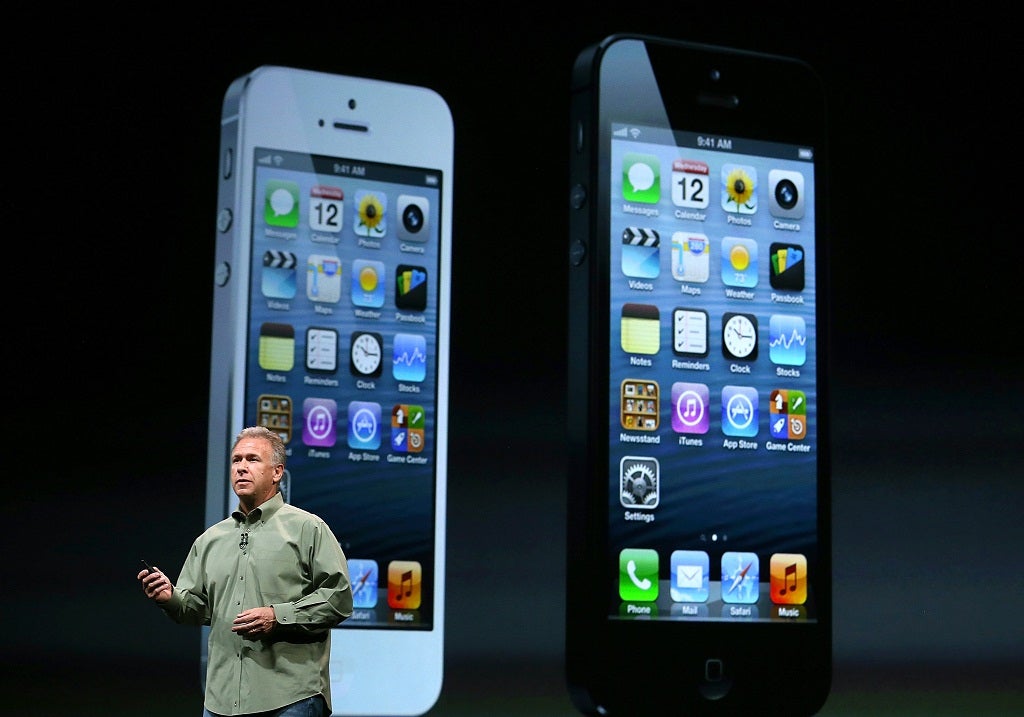We're in the grip of upgrade addiction
These new iPhones don't have any new bells or whistles - we pay £529 just for the pleasure of having something new

Your support helps us to tell the story
From reproductive rights to climate change to Big Tech, The Independent is on the ground when the story is developing. Whether it's investigating the financials of Elon Musk's pro-Trump PAC or producing our latest documentary, 'The A Word', which shines a light on the American women fighting for reproductive rights, we know how important it is to parse out the facts from the messaging.
At such a critical moment in US history, we need reporters on the ground. Your donation allows us to keep sending journalists to speak to both sides of the story.
The Independent is trusted by Americans across the entire political spectrum. And unlike many other quality news outlets, we choose not to lock Americans out of our reporting and analysis with paywalls. We believe quality journalism should be available to everyone, paid for by those who can afford it.
Your support makes all the difference.My mum's dad lived near Swansea, his name was Bill and he drove a Volvo. He was terribly fond of Volvos. Every time we went to visit on summer holidays, he'd have a new Volvo that he'd bought a few weeks earlier. None of us understood why he felt the need to replace a perfectly functioning Volvo with another; we just knew he wasn't showing off – after all, it was a Volvo, and citizens of West Glamorgan have never been that impressed by Volvos. My grandpa simply suffered from an early form of a very modern malaise: upgrade compulsion.
That compulsion is better understood today, and particularly by the technology companies whose profit margins depend on it. The actual content of the launch of the iPhone 5 earlier this week felt almost immaterial; Apple CEO Tim Cook could have told us a parable using hand puppets made of dishcloths and we'd still want to buy one. That's how Apple has become the most valuable company in the world: by transforming customers like myself into unquestioning disciples. We figure that if they're calling it the iPhone 5, it's going to be one better than the iPhone 4, so that must be good – here, have £529.
Much has been written about the cost of producing iPhones versus the price we pay for them. But our upgrade compulsion makes the sums look even weirder. The iPhone 5 doesn't have many new bells and whistles; we pay £529 for something that does much the same as our existing iPhone but a bit faster, on a slightly bigger screen and within a slightly slimmer body.
We overlook drawbacks, such as the new, smaller “Lightning” connector that makes our old cables and chargers redundant, or the much-touted 4G capability (super-fast, next-generation internet access) that's only accessible if we're customers of the T-Mobile-Orange alliance that's now known, somewhat hubristically, as Everything Everywhere, or EE.
“When you think about your iPhone,” said its designer Jony Ive this week, “it's the object you use most in your life. You have it with you all the time.” Little wonder, perhaps, that we crave a change of scenery; upgrading is the same impulse that prompts us to rearrange the furniture in our living room or plant a new herbaceous border. We want a new vehicle to carry us through cyberspace – just like my grandpa wanted a new Volvo to get him up the road to Ystradgynlais. The journey's the same; upgrading just makes us feel marginally better about making it. I guess we have to grab these expensive crumbs of comfort where we can.
Twitter: @rhodri
Join our commenting forum
Join thought-provoking conversations, follow other Independent readers and see their replies
Comments